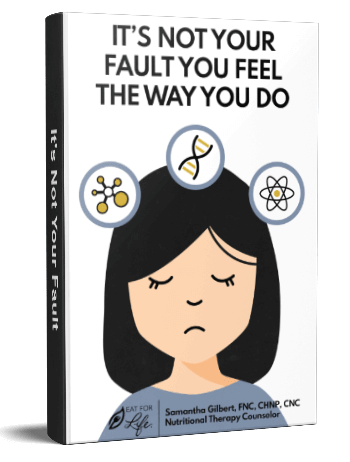Recovering from eating disorders can be a challenging and lengthy process, but one of the most crucial aspects of recovery is nutrition. Food not only fuels the body, but also helps to restore the physical and mental imbalances caused by disorders like anorexia, bulimia, and binge-eating disorder. An essential component of the rehabilitation process, proper diet presents mental health, encourages healing, and replenishes energy. Embrace the power of food to nourish your body and mind. Choose to Eat For Life and embark on a journey of healing and self-discovery.
In this article, we’ll explore five key nutrition strategies for overcoming eating disorders, offering actionable insights to help those seeking recovery.
Rebuilding Nutritional Balance After Eating Disorders
One of the most important first steps in recovery is rebuilding the body’s nutritional balance. Eating disorders often result in severe malnutrition, leading to imperfections in key vitamins and minerals. These deficiencies can impair physical and mental health, making recovery even more difficult.
To counter this, it’s essential to introduce nutrient-rich foods that are easy to digest and absorb. Several essential nutrients that must be taken into account are:
- B vitamins: Essential for the neurological system’s proper functioning and energy production.
- Iron: Helps in restoring healthy blood and oxygen levels.
- Zinc: Supports immune function and wound healing.
- Magnesium: Aids in muscle recovery and mental relaxation.
Working with a nutritionist can help create a meal plan that provides these nutrients in a way that supports your unique recovery needs.
The Importance of Regular Meals in Eating Disorder Recovery
Regular meals are crucial for stabilizing blood sugar levels and creating healthy eating patterns, especially for those recovering from disordered eating patterns. Many individuals struggle with hunger cues after prolonged restriction, binging, or purging behaviors, which can lead to irregular eating habits.
Adopting a structured eating schedule, such as three meals and two snacks daily, can help reintroduce normal hunger signals while preventing overwhelming urges to binge or restrict food. Eating balanced meals at regular intervals stabilizes energy levels and supports overall well-being.
Pro tip: Focus on incorporating a mix of complex carbohydrates, animal proteins, and healthy fats in every meal to sustain energy throughout the day. Ready to take control of your eating habits and rediscover a healthier you? Start your journey with Eat For Life today!

Healing the Gut After Eating Disorders
Eating disorders can wreak havoc on gut health, leading to issues like malabsorption, bloating, and gut flora imbalances. These symptoms are often the result of prolonged malnutrition and purging behaviors.
To heal the gut, it’s important to introduce gut-friendly foods such as:
- Probiotics: Found in yogurt, kefir, and fermented foods like sauerkraut, which support a healthy gut microbiome.
- Fiber: Fruits and vegetables help improve digestion and bowel regularity.
- Collagen and bone broth: These provide amino acids and minerals that promote gut healing and reduce inflammation.
The Role of Hydration in Recovery
Hydration is often overlooked in the recovery process from eating disorders, but it plays an essential role in restoring health. Dehydration is common among those with eating disorders, particularly for those who engage in purging behaviors or restrict fluids.
Aim for at least 8-10 glasses of filtered water daily, and consider including electrolyte-rich beverages, especially if you’re recovering from purging behaviors that cause significant fluid and electrolyte loss. Coconut water and electrolyte supplements can help replenish the body’s reserves and maintain hydration.
Staying hydrated not only supports physical recovery but also aids cognitive function, helping with concentration and mood stabilization during the healing process. Discover how staying hydrated can support your overall well-being. Visit Eat For Life today.
Addressing Emotional Eating and Mindful Eating Practices
Eating disorders and mental health problems are often linked with eating-related problems. One strategy to combat these feelings is adopting mindful eating practices, which can help create a positive relationship with food.
Mindful eating encourages individuals to be present during meals, paying attention to hunger and fullness cues without judgment. Take into consideration these suggestions for mindful eating:
- Eating slowly and savoring each bite.
- Avoiding distractions, like phones or TVs, during meals.
- Tuning into how different foods make you feel physically and emotionally.
Rebuilding a healthy emotional connection with food is key to long-term recovery from compulsive overeating
Conclusion: Nutrition as a Cornerstone of Recovery
Proper nutrition is essential for healing the body, stabilizing emotions, and rebuilding a healthy relationship with food. By focusing on balanced meals, gut health, hydration, and mindful eating, individuals in recovery can take significant strides toward full health.
If you or someone you love is struggling with an eating disorder, consider working with a functional nutritionist who can develop a personalized recovery plan. With the right nutritional support, rehabilitation from eating disorders is not only attainable, but also feasible. Ready to take the first step towards recovery? Contact Eat For Life today for a personalized nutrition plan.
Regular monitoring of nutritional intake and its impact on OCD symptoms is essential. Keeping track of dietary changes and symptom fluctuations can provide valuable insights into the effectiveness of nutritional interventions. At Eat for Life, we work with individuals to refine dietary plans, ensuring they align with the overall treatment goals, biochemistry, and gut health, while supporting optimal mental health.

